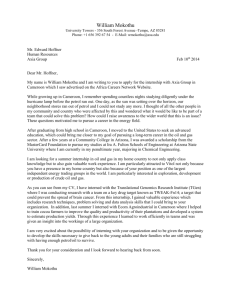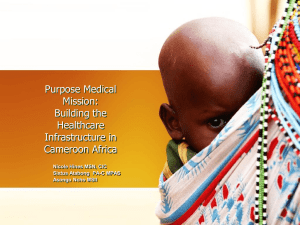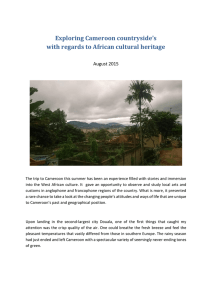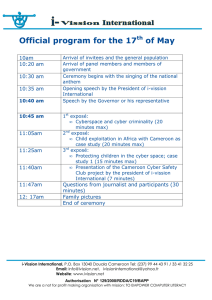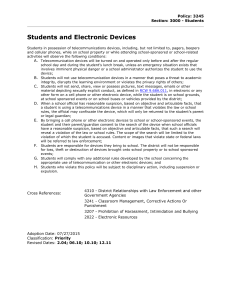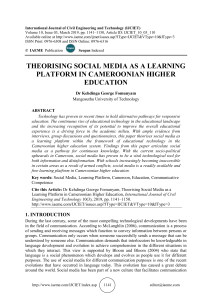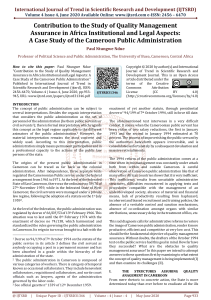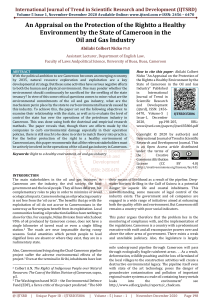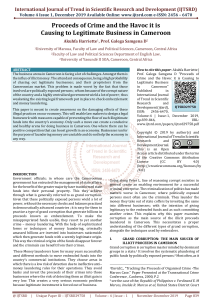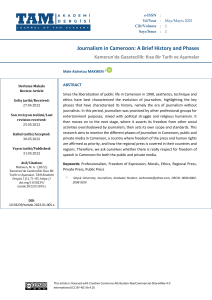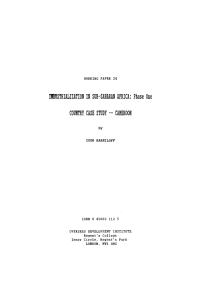I T U
advertisement
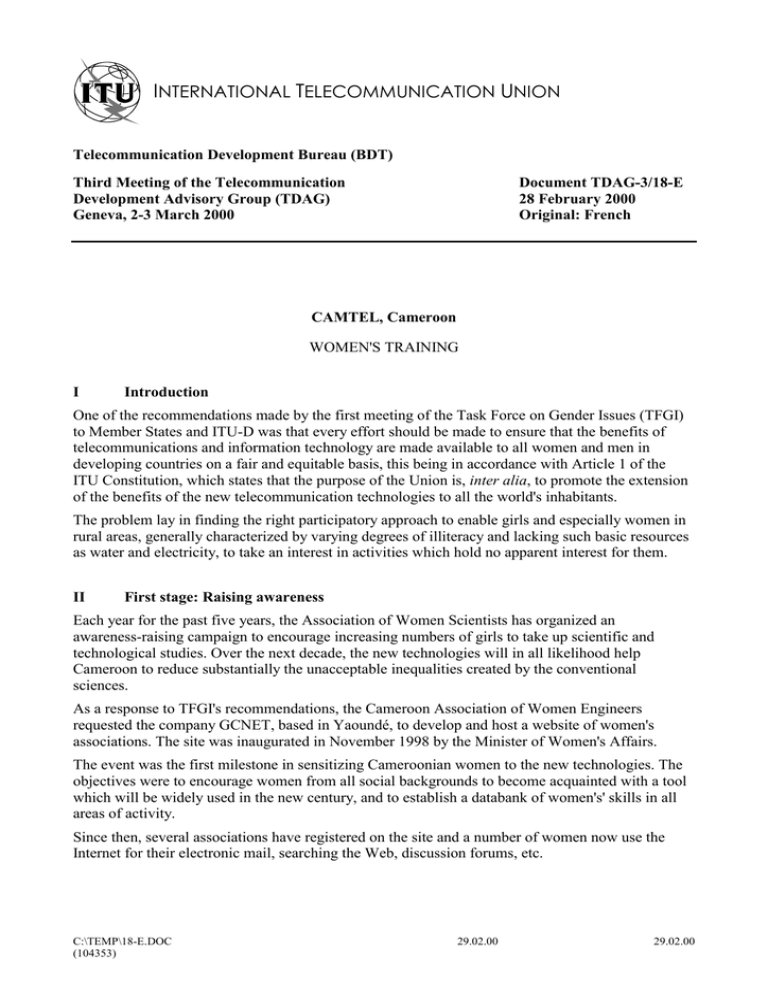
INTERNATIONAL TELECOMMUNICATION UNION Telecommunication Development Bureau (BDT) Third Meeting of the Telecommunication Development Advisory Group (TDAG) Geneva, 2-3 March 2000 Document TDAG-3/18-E 28 February 2000 Original: French CAMTEL, Cameroon WOMEN'S TRAINING I Introduction One of the recommendations made by the first meeting of the Task Force on Gender Issues (TFGI) to Member States and ITU-D was that every effort should be made to ensure that the benefits of telecommunications and information technology are made available to all women and men in developing countries on a fair and equitable basis, this being in accordance with Article 1 of the ITU Constitution, which states that the purpose of the Union is, inter alia, to promote the extension of the benefits of the new telecommunication technologies to all the world's inhabitants. The problem lay in finding the right participatory approach to enable girls and especially women in rural areas, generally characterized by varying degrees of illiteracy and lacking such basic resources as water and electricity, to take an interest in activities which hold no apparent interest for them. II First stage: Raising awareness Each year for the past five years, the Association of Women Scientists has organized an awareness-raising campaign to encourage increasing numbers of girls to take up scientific and technological studies. Over the next decade, the new technologies will in all likelihood help Cameroon to reduce substantially the unacceptable inequalities created by the conventional sciences. As a response to TFGI's recommendations, the Cameroon Association of Women Engineers requested the company GCNET, based in Yaoundé, to develop and host a website of women's associations. The site was inaugurated in November 1998 by the Minister of Women's Affairs. The event was the first milestone in sensitizing Cameroonian women to the new technologies. The objectives were to encourage women from all social backgrounds to become acquainted with a tool which will be widely used in the new century, and to establish a databank of women's' skills in all areas of activity. Since then, several associations have registered on the site and a number of women now use the Internet for their electronic mail, searching the Web, discussion forums, etc. C:\TEMP\18-E.DOC (104353) 29.02.00 29.02.00 -2TDAG-3/18-E The site is open to all associations without discrimination, and registration is free of charge. For the start-up phase, the following online services are available: – opening an Internet account with electronic address; – creation of a personal Web page; – access to a weekly newsletter reporting on women's activities in Cameroon and throughout the world; – access to a Woman of the Month page (presenting a woman who has achieved renown in one way or another in the course of the month), practical information and links to other women's sites worldwide. A "skills" page is in the process of being developed; it will enable Cameroonian women to sell their know-how on the international scene. The website of the Cameroon Association of Women Engineers was selected by UNESCO as one of the 50 best African sites in 1999. III Second stage: Training Awareness-raising is very much an ongoing phase in the process, but the second stage - women's training - is very important. This is the stage which will really enable women to discover what the new technology can bring them. The resources of the Cameroon Association of Women Engineers are still very modest, and training activities are generally quite costly. To attain its objectives, the Association has appealed for voluntary contributions from some of its members and for sponsorship by certain local companies in the form of funding for the training of their own female staff and an equivalent number of women belonging to women's associations. The Association's goal is to train some 400 women in the course of the year. These joint activities, which began in November 1999, have already enabled 128 women to be trained. The first two classes, comprising a total of 44 women, received their certificates on 23 December 1999 at an official ceremony to launch the programme, presided over jointly by the Minister of Women's Affairs and the Minister of Posts and Telecommunications, and attended by numerous women and well-known figures. IV Next stage The next stage will comprise: – the creation of community telecentres in areas with low telephone density, in order to promote universal access, rural development and telecommunications; – the establishment of a subregional network to provide useful information for the management of biodiversity conservation, the fight against poverty and other activities. The information network is intended above all for women, since it is they who are the most affected by such problems; – support for members of the women entrepreneurs' association, ASAFE, who are currently developing e-commerce sites; – identification of and support for women interested in the new technologies. ____________ C:\TEMP\18-E.DOC (104353) 29.02.00 29.02.00
